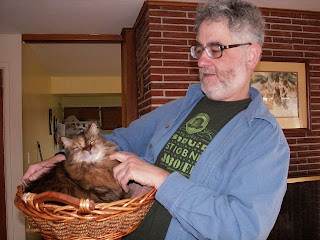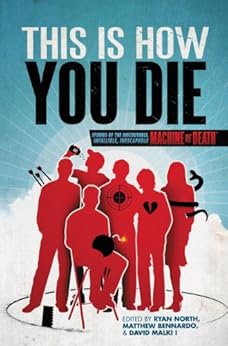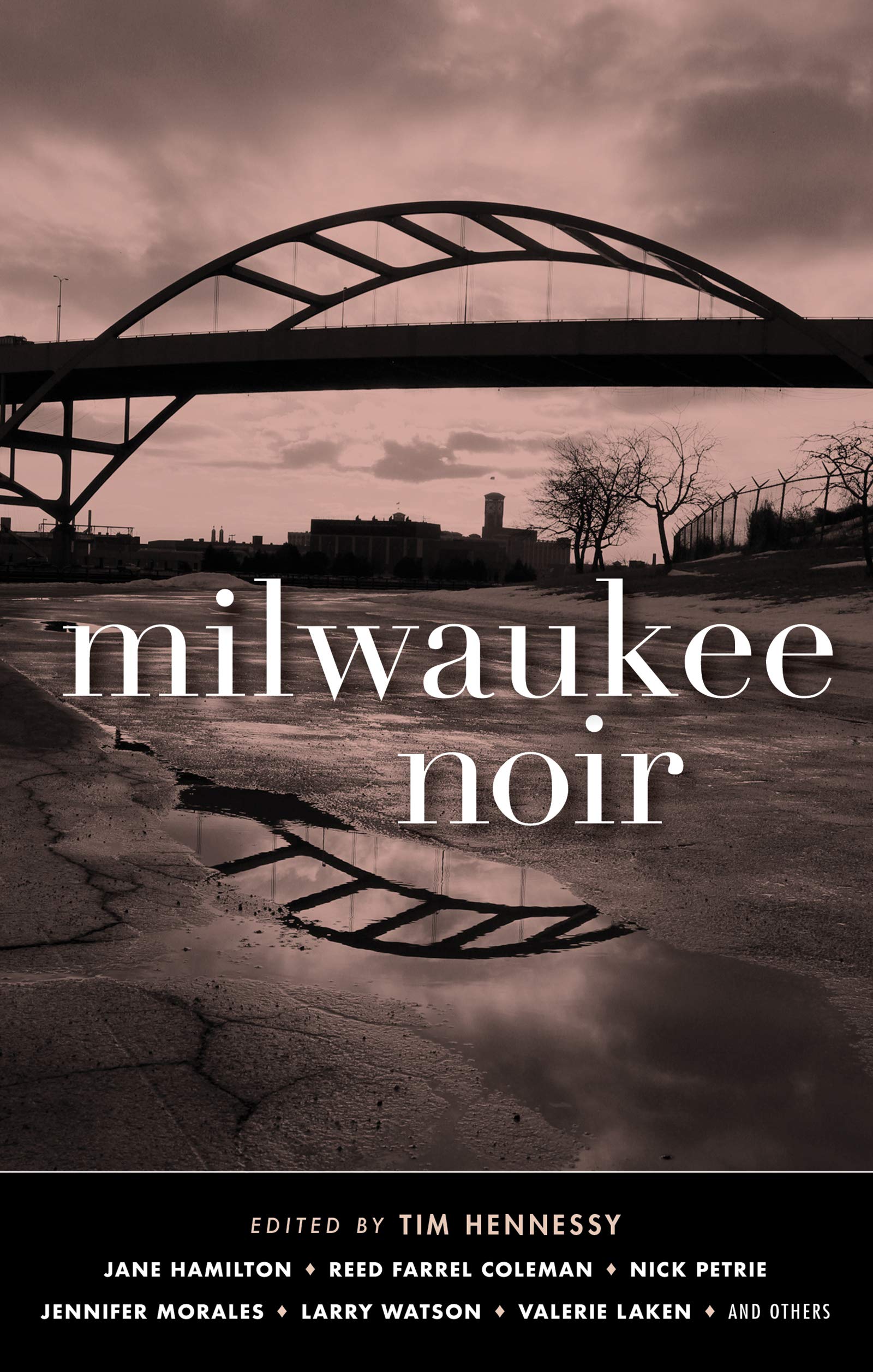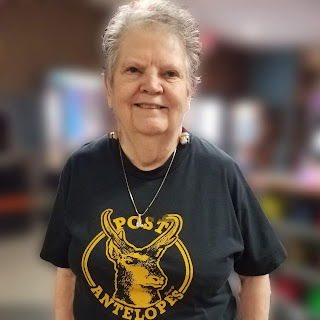Let's talk about
Machine of Death, a concept I mentioned back in
October (and will review below). I wrote two short stories for the sequel book and both were rejected. I lamented here that the concept was so specific I would never be able to get the stories published.
And Leigh asked: “Why not put them up at SleuthSayers?”
Why not indeed?
The idea began in a cartoon by
Ryan North. Imagine a machine: you put a drop of your blood in it and out pop a card telling you how you will die. It is
always right.
But like oracles in thousands of years of stories, it can be misleading and ambiguous.
Old age could mean a nonagenarian collapses at the wheel of his car tomorrow and runs you over.
Mary could refer to your beloved wife, or a hurricane.
North edited a book with David Malki! (yes,the exclamation point is part of his name) and Matthew Bennardo. It was so successful that they announced there would be a sequel and invited submissions.
I sent in two and, as you guessed, they were both rejected. Below you will find the one that is crime-related. Specifically I wondered: How would homicide investigations operate in the world of the Machine?
I hope you enjoy it.
Shot by Your Partner
“It’s the oldest question,” said Staney. “Did Adam fall, or was he pushed?”
"The dude’s name was Arthur, not Adam,” said Merritt. “Arthur Duplessis.”
“That was a metaphor. I was waxing philosophical.”
“You better watch that waxing. Hey! There’s your cause of death.
Overwaxing.”
“Uh, listen,” said the coroner’s tech. He was standing at the bottom of the staircase, examining the corpse that was the reason for the gathering. “It’s not official yet, but the cause of death is a broken neck.”
“Wasn’t talking to you, sonny,” said Merritt. “My partner, Detective First Class Staney here, refuses to tell me what the death-box predicted for him.”
"None of your business.”

“You see what he’s like. But he promised that if I ever guessed correctly he would admit it.”
“I don’t remember saying that.”
“But I do.
Choking on peanut butter.”
“No.” Staney looked around what was obviously the secondary staircase for this wing of the mansion. While it was a poor stepcousin of the curving grand staircase at the other end of the floor - a football team could have run up that one without feeling pinched - it was still better decorated than his own living room. “I take it Mr. Duplessis owned this place. Who are all those folks upstairs?”
The first uniform to arrive on the scene stepped forward. Her name tag said WALLINSKY. “The victim and his wife were hosting a fashion show. There were over a hundred people in the ballroom.”
“And nobody saw anything,” Merritt guessed.
“Not the ones we’ve talked to so far. They were all watching the show. And the room was dark except for the lights on the runway.”
“So Duplessis slipped out of the ballroom,” said Staney. “An older guy, stepping out of the darkness onto a brightly lit landing. He didn’t see where he was going and he took a tumble down the stairs. Could have happened.”
“In which case we can go home early.” Merritt frowned. “Who puts their ballroom on the second floor? When I win the lottery I’m building mine near the front door.”
“Billionaires do as they please. Ours not to reason why. Ours is to figure out if Mr. D. got a boost up on the way down.”
“Uh…” said the tech.
“Spit it out, sonny.”
“I’ve found something that might help you with that.”
“We’re all ears.”
“There’s a gash on the side of his head, above the temple.”
“And he didn’t get it falling down the stairs?”
“I don’t think so, sir. More like a blunt instrument.”
“Like maybe the cane?” asked Staney.
“Cane?”
“The wooden number with the silver handle. It’s lying near the wall behind you.”
“Get the Scenies to check it for prints and tissue,” said Merritt. “What’s your name, by the way?”
“Me?” The tech looked startled. “Uh. Davis.”
“Okay, Davis. Good work. Could that blow have killed him?”
“I don’t think so, sir. But it could have made him dizzy, disoriented.”
“And then he falls,” said Staney. “Felony murder.”
“Or gets pushed,” said Merritt. “Plain old vanilla murder. Hey, that’s your cause.
Vanilla murder.”
“No. But that brings up the obvious question. Did our boy have a death tag?”
“If not, it’s too late now.”
Not long after the machine was invented a clever cop took a blood sample from a corpse and ran it through a box to see if something helpful popped out, like maybe the killer’s name and address.
Instead what she got was
Division by zero error. Later trials with blood samples which had been taken
before the victim croaked got the same result.
Implying that, somehow, the
damned machines knew when somebody died. That wasn’t widely advertised since it was, as one distinguished biologist put it, “creepy as hell.”
On the other hand, the only creepy thing about Talia Duplessis was that neither cop could tell whether she was a thirty-year-old woman dipped in too much make-up or a fifty-year-old woman who had spent a lot of quality time with expensive surgeons. She looked terrific but a little artificial.
“I can’t believe he’s dead,” she said, again. They were in the main wing of the mansion, where the lucky one-percenters lived, as opposed to the side where they entertained. The cops were interviewing her in a room she called the salon, which looked to Staney like a museum exhibit on conspicuous consumption. “He was only sixty-seven.”
“We noticed he had a cane,” said Staney.
“Yes. Arthur suffered from rheumatoid arthritis, and it was getting worse. He should have used a walker, or a scooter. But he was too proud.” She frowned. “But why did he use the side stairs? There’s an elevator in the main hall.”
“Do you know why he was going downstairs in the first place?”
“No.”
“Where were you when he fell?”
“Me?” She paused to think. “One of the anterooms on the other side of the ballroom. Ed and I were checking the last minute details.”
“Ed?”
“Ed Forillo. Arthur’s assistant.”
“What was your husband’s business, by the way?” asked Merritt. “Was he a fashion designer?”
“Arthur? He didn’t have a creative bone in his body. He called himself a facilitator of the arts. He owned fashion magazines, and art galleries. A movie studio.”
“Did he have any enemies?”
“Enemies? Her eyes widened. “What a strange word. So
medieval. I guess he had business rivals.”
“Were any of them here tonight?”
“Most of them.” She blinked, still playing catch-up. “What does this have to do with his accident?”
“There’s some evidence the fall might not have been an accident.”
“Oh my god.”
“Ms. Duplessis, do you know whether your husband ever used a death machine?”
“What? Yes.
Broke neck in fall.” She shuddered. “That’s what it said. I
told him we should block off the stairs, or move to a one-story house. He just laughed and said he might fall out of bed but he wasn’t going to sleep on the floor.”
“Mr. Forillo,” said Staney, “what exactly did you do here?”
The assistant was a good-looking man, thin and just over six-foot. Maybe thirty years old. If he was broken-hearted over his boss’s death he was managing to conceal it.
“I am—I was – Mr. Duplessis’ assistant.”
“I understand he owned a lot of businesses. Which one did you work for?”
Forillo smiled briefly. “My paychecks came from his publishing house, but I didn’t really work for them. My job was to coordinate his schedule, and keep any of his enterprises from taking up too much of his time.”
“You were his flak-catcher.”
“Something like that.”
“We understand you found his body,” said Merritt.
A nod. “The show was almost over and Ms. Duplessis wanted to make sure he was ready to make his speech. I didn’t see him in the hall and I thought he might have stepped out for a cigar.”
“His wife objected to him smoking? Even with the new med tobacco?”
“It’s terrible for people with arthritis.”
“I guess so,” said Staney. “How did you get along with Mr. Duplessis?”
A shrug. “I’ve had better employers, and worse. The money is good.”
A squad of detectives kept at the interviews until one A.M. when a wealthy guest persuaded the deputy chief to send everyone home.
“I don’t get it,” said Merritt, as they drove back to the station.
“What’s your problem now?”
“A man with all the money in the world, knew he was going to die in a fall. Why didn’t he move to a single story house? Hell, he could have hired a guard to stand at the top of the stairs, 24/7. Both staircases.”
“I guess he didn’t worry about it.”
“It’s crazy. You don’t see me going near a domestic disturbance.”
“If you keep slipping around on Vivian, I can tell you exactly which domestic disturbance you’ll die at. Hell, I can give you the address.”
“Wise ass. Hey, have I ever asked you if
you die in a
Domestic disturbance too?”
“You have.”
“Duplessis left the hall around ten and left this world before ten-twenty,” said Merritt the next morning. “Lao, our tame computer geek, pulled an all-nighter creating a matrix based on the statements of the guests. We have a list of everyone who isn’t alibied by at least two people.”
“We owe Lao a beer.”
“She doesn’t drink, but I’ll send her cheeseburgers with curly fries.”
“I don’t know how anyone can eat that crap,” said Staney.
“I guess she isn’t scheduled to die of a heart attack. Have I asked—”
“Yes. How many people are on that no-alibi list?”
“Nine. Including the grieving widow and the cold fish assistant.”
“Let’s see the others first.”
“I want to be diplomatic,” said Curtis Houston. “Speak no ill of the dead and all that. Arthur Duplessis was a turd in a five-grand suit.”
Staney’s eyes widened. “What would you say if you
weren’t being diplomatic?”
“Just add examples, I suppose.”
Houston’s fashion business took up most of the ten-story building where they were seated. His office had a great view in two directions.
“What would his friends say?” asked Merritt.
“Hmm. That’s a puzzle.” He frowned at the ceiling. “I imagine they’d say that whatever he paid them to be his friends wasn’t nearly enough. Duplessis was vain, arrogant, and ruthless, never forgot a slight – I once saw him get a waiter fired merely because he looked like a different waiter Arthur hadn’t liked. I’m serious. He bragged about that.”
“So, he wasn’t an easy man to get along with.”
“No one got along with Arthur. You did what he wanted or you stayed the hell out of his way. You might think the MS would have made him take a broader view of things, but it just made him meaner.”
“MS?”
“Multiple sclerosis. Talia didn’t mention that?”
“She said he had rheumatoid arthritis.”
“It was more serious than that.” Houston shrugged. “Don’t ask me how I know. Of course he wanted to keep it secret from his competitors, but I’m surprised he would lie to his wife about it. Or maybe she lied to
you.”
“How was Mr. Duplessis as a businessman?”
“The instincts of a Rockefeller. The ethics of a pickpocket.” Houston smiled. “If gravity had an email account, I’d send it a thank you.”
“What if it isn’t gravity that gets the credit?” asked Merritt.
Houston’s eyes widened. “You mean – was he
pushed?”
“If he was, who had a motive? Besides you, of course.”
“Me?” He looked astonished. “Don’t be silly. I loved the man!”
The next few interviews didn’t do much except confirm that Duplessis had not been a popular guy.
Suspect number six was Charlotte Wyngood, the victim’s lawyer.
“I understand due diligence, detectives, but I hope this isn’t going to turn into harassment of my client.”
”I thought your client was dead,” said Staney.
“I worked for both husband and wife.”
“Any conflict of interest there?”
She frowned. “What’s your point, exactly? Several people have told me you are asking some pretty rude questions.”
“Police investigations can get rude,” Merritt agreed. “That’s the worst thing about murder, I’ve always said.”
“Who said murder? Mr. Duplessis fell down the staircase.”
“After someone hit him on the head with his own cane.”
“Perhaps falling down the stairs…”
“He bumped the cane hard enough to leave blood on it? No.”
“I don’t see what this has to do with Ms. Duplessis.”
“We’re checking on everyone who isn’t alibied by at least two witnesses. For example, no one saw you after ten P.M.”
Wyngood’s eyebrows went up. “Oh, that’s why you’re here. The truth is, fashion shows bore me to tears. I was in one of the little rooms on the west side making business calls. I’m sure you can check my phone log.”
“Can and will. What did you think of Mr. Duplessis?”
A thin smile. “He paid his bills on time. And gave me some interesting challenges.”
“Ethical challenges?” asked Staney.
“I don't know what you’re implying-- Excuse me.” She looked at her phone. “Oh. It’s lucky you came by, detectives. A technician has arrived to open Mr. Duplessis’ safe.”
“And under Patriot Act III law enforcement representatives need to be present,” said Staney.
“To make sure there are no terrorist funds,” said Merritt, with a straight face.
“Very commendable,” said Wyngood, dryly. “Shall we go?”
“I say we’ll find a ton of Gazas in the safe,” said Staney, in the car. They were following the lawyer, who had refused to travel in a police car, even an unmarked one.
“Mind they don’t fall on you,” said Merritt. “Is that it?
Crushed by a pile of gold coins?”
“My god, don’t you ever let up?”
The safe was a state-of-the-art cube six feet on a side, residing in the back of a closet in the victim’s dressing room.
The tech from the safe company was a state-of-the-art nerd with assorted gadgets hard-wired to his body. Once he had seen the court order, confirmed that cops were present, and received a thumb ID from the widow, the actual opening of the safe happened so fast as to seem an afterthought.
And a disappointment, too. Talia Duplessis immediately pulled out a leather folder. “Arthur’s will,” she explained, and handed it to Wyngood.
The rest of the loot was paperwork, stocks, and bonds.
Merritt was the first to spot a familiar rectangle of stiff white paper. “I’ll take that,” he said, picking up the death card in a gloved hand.
He read it and his eyebrows shot up. Then he handed it to Staney.
“Ms. Duplessis, what did you say was the machine’s prediction for your husband’s death?”
“Broke neck in fall.”
“That’s what I thought. So how do you explain this?”
Staney held the card out delicately, keeping it out of everyone’s reach. In the center of the card were the words:
Talia and Ed.
Ah, but that's not the end of the story! For the rest of the investigation click
here..






































